News
MannionDaniels supports the Global Education Evidence Advisory Panel (GEEAP) in Tanzania, Kenya, and the U.K.

“To believe in evidence and increase its uptake, we need it in a language we understand… in a way which compels us to use it. As researchers, we need to encourage curiosity” – Dr Sara Ruto, GEEAP member
In March 2023, over 100 education leaders across Tanzania came together for the second ‘Utafiti Elimu Tanzania’ (meaning ‘Research Education Tanzania’ translated from Swahili) education evidence event in Dar es Salaam. This annual event explores the education landscape in Tanzania and encourages use of local and global evidence on education interventions to improve education outcomes in the country. The event was organised in partnership between the Government of Tanzania, the University of Dar es Salaam, Aga Khan Foundation, FCDO, EdTech Hub, the GEEAP, and the British Council.
Following the 2022 Utafiti Elimu Tanzania event, the Government of Tanzania introduced new education policy inspired by the recommendations shared by participants during last year’s event, in areas such as inclusive education and effective data use. The Government of Tanzania’s current priorities in education are supporting teachers and addressing climate challenges, which were reflected in the topics of the 2023 event.
GEEAP member, Dr Sara Ruto, followed opening speeches with an inspiring keynote presentation, sharing relevant Panel recommendations and encouraging a balance between learning from global evidence and developing locally-grounded research:
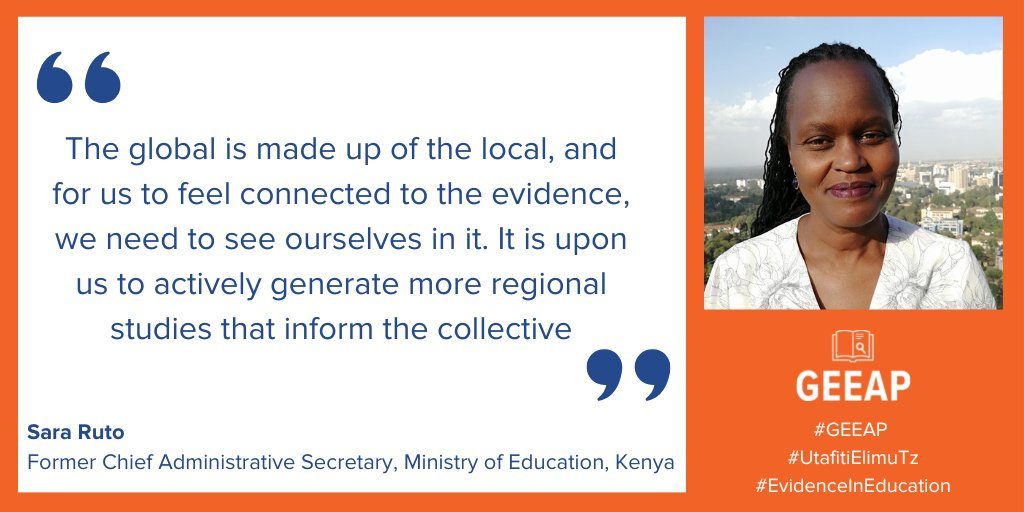
Sara Ruto set the tone of the event with enthusiasm and passion, willing all participants to engage in conversations to inform real policy change in Tanzania.
Following her presentation, a panel, made up of representatives from the four GEEAP convening organisations (FCDO, World Bank, UNICEF, and USAID), highlighted the importance of the conference topics: teacher workforce planning and management, and climate, environment, and infrastructure, and how to connect evidence into the policy discussions on these topics. With a high pupil-teacher ratio in many parts of the country and the need to build resilience against increasing climate shocks, it is an important time to seek new ways to address these issues.
Recapping the key messages from the event, FCDO Tanzania Development Director, Kemi Williams said: “Evidence is out there, but we need more contextualised and localised evidence and data, and a renewed sense of urgency.”
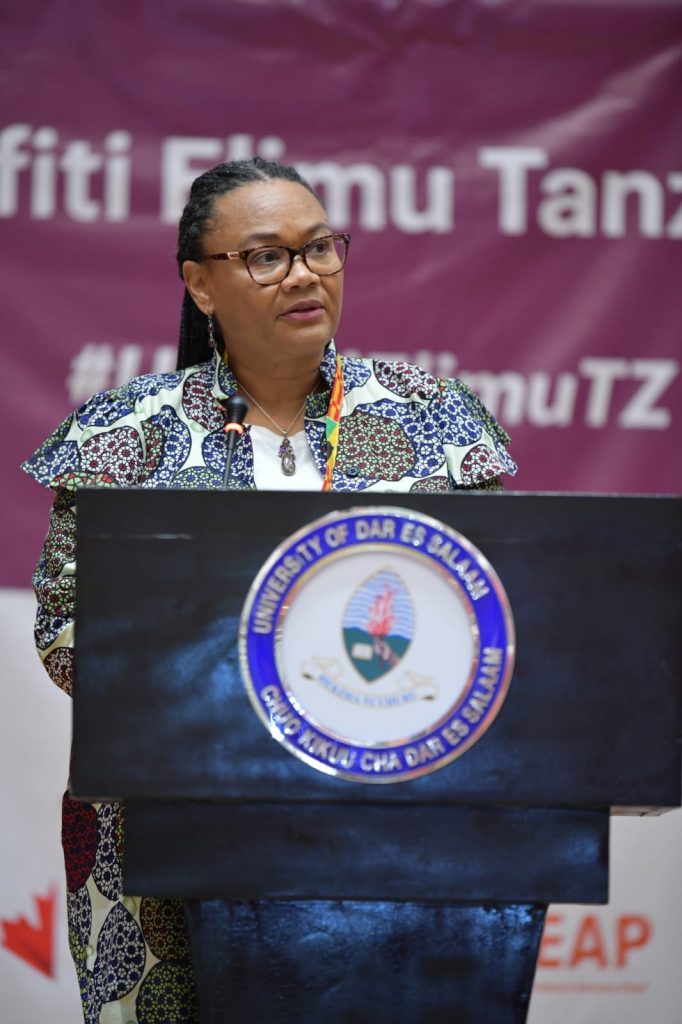
The Tanzanian education community expressed their joint commitment to staying curious about generating new evidence, committed to using evidence, and ensuring its impact on achieving quality education for every child in the country.
A week later, MannionDaniels represented GEEAP alongside the What Works Hub, Zizi Afrique Foundation, the Education Development Trust, British Council, Education Commission, and Education Evidence for Action (EE4A) to host the ‘2023 Africa Evidence Forum on Foundational Learning’ for scholars, policymakers, and officials from Ministries of Education from six African countries.
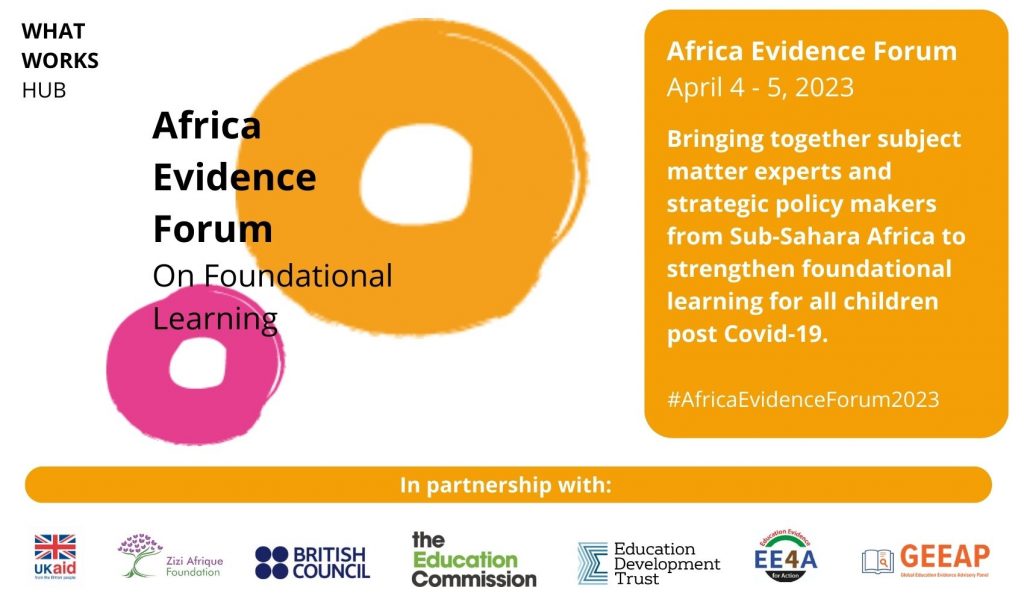
“Is the education we are getting in Africa comparable to other continents?” asked Sara Ruto as she opened the forum. Sara Ruto continued: “Our children need an education which will enable them to not only thrive in their villages, but cross borders and thrive as global citizens.”
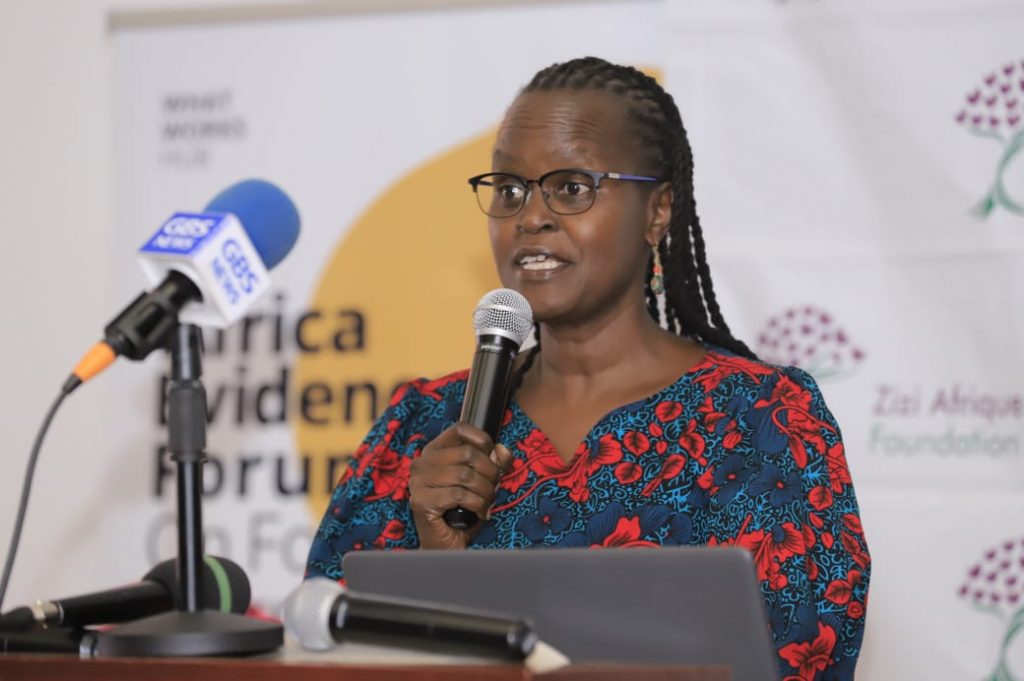
With her expertise on using global evidence to support foundational learning, Sara Ruto challenged event participants: “We need a strategy for foundational learning. The idea of that strategy must be to create a common vision for all actors. We need to be harnessed towards a common goal and shared understanding of foundational learning – going beyond just numeracy and literacy to include basic life skills.”
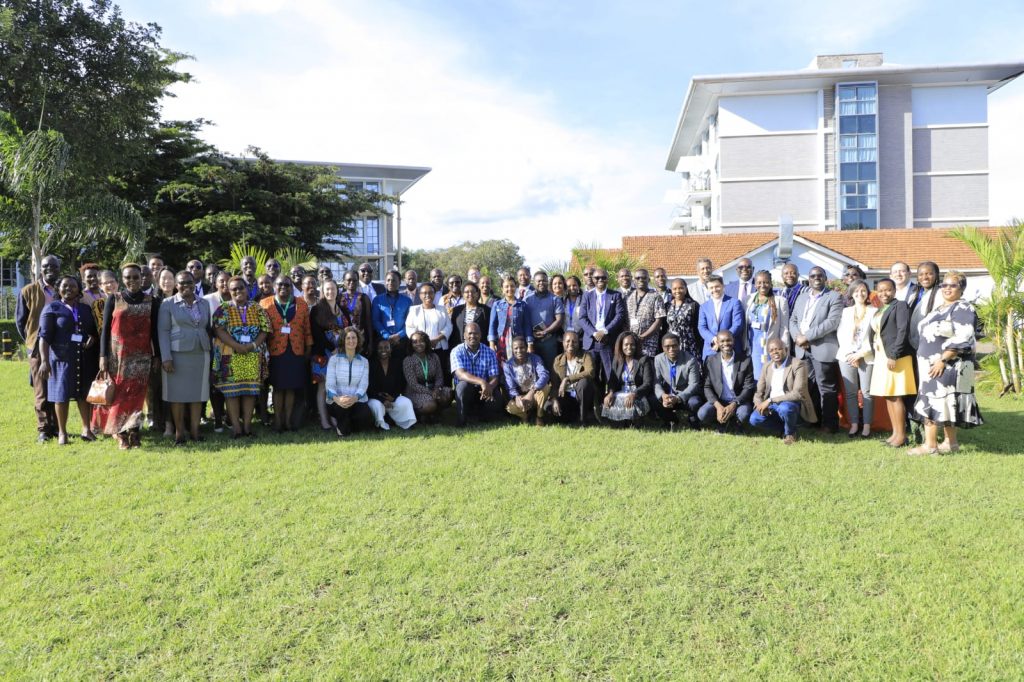
The two-day event created much needed discussion and debate between policymakers, educators, and researchers. These discussions will continue at the upcoming Education World Forum (EWF) conference next week, where MannionDaniels is supporting the GEEAP to meet again with ministers and senior education officials from countries around the world, including Kenya, Ghana, Zambia, India, and Pakistan.


